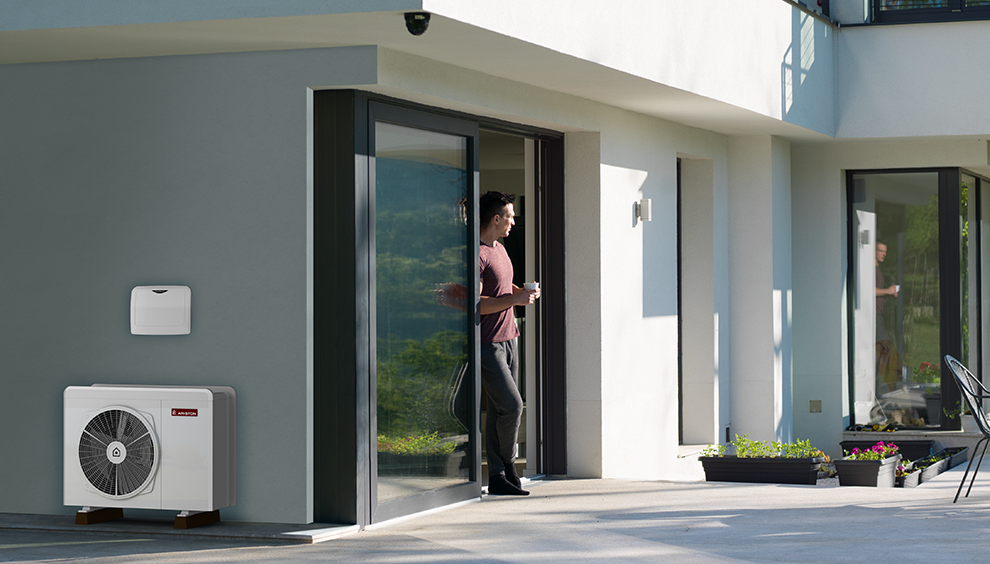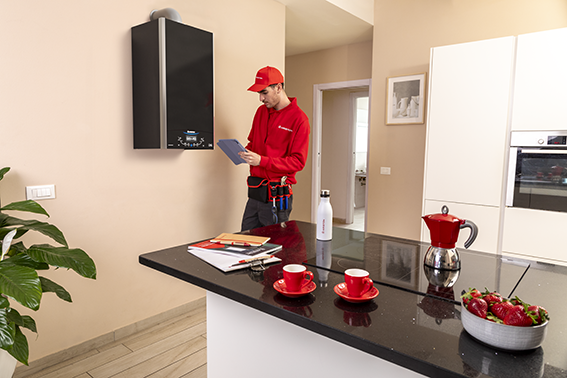Heat Pump Water Heater: How Does It Work?
Heat pump water heaters represent an advanced, sustainable technology for domestic hot water production. These devices are known for their energy efficiency, using less electricity than other types of water heaters and harnessing heat energy from the outside air.
The heat pump water heater is an eco-friendly solution for domestic hot water production. These devices, effective even in variable weather conditions, offer an energy-efficient alternative to traditional methods.
Principles of operation of a heat pump water heater
The operation of a heat pump water heater is based on a thermodynamic cycle that uses energy from the outside air to heat water. The process occurs through several key components:
● Air intake: the device's outdoor unit draws in outside air, harnessing natural heat energy, even at low temperatures.
● Refrigerant cycle: a refrigerant passes through a closed circuit inside the device, changing state from liquid to gas and vice versa. This transformation occurs under the action of a compressor that increases the pressure and temperature of the refrigerant gas.
● Heat transfer: the hot gas passes through a heat exchanger (condenser), where it gives up its heat to the water in the tank, cooling and condensing into a liquid.
● Expansion and evaporation: the liquid refrigerant passes through an expansion valve that reduces its pressure, allowing it to evaporate and absorb heat from the surrounding air, repeating the cycle.
Pros and cons of heat pump water heaters
The advantages of a heat pump water heater are many and varied, making it suitable for different housing situations:
● High energy efficiency: heat pump water heaters can convert 1 kW of electricity into 3 kW of heat, offering significant energy savings over conventional systems.
● Reduced CO2 emissions: by using renewable energy (ambient heat), the heat pump water heater reduces greenhouse gas emissions.
● Reduced operating costs: although the initial investment may be higher, operating costs are significantly lower, offsetting the initial expense over time through energy savings.
Let’s take a closer look, on the other hand, to some possible disadvantages of heat pump water heaters:
● High initial cost: heat pump water heaters have a higher initial cost than conventional models. This can be a barrier for some consumers, especially in the absence of incentives or financing.
● Dependence on environmental conditions: while they take advantage of outside air for their operation, in very cold environments their efficiency can decrease significantly, requiring more energy to maintain hot water production.
● Complex installation: they require adequate space and technical specifications for installation that may not be compatible with all homes, especially in older homes or those with tight spaces.
When is it ideal, and when not recommended, to opt for a heat pump water heater?
A heat pump water heater is ideal for those seeking a sustainable, long-term solution for heating domestic water:
● Replacements and new installations: replacing old electric or gas water heaters with a heat pump model optimises consumption and reduces expenses.
● Homes with high hot water needs: for large families or facilities that require large amounts of hot water, the heat pump is particularly advantageous.
● Integration with existing systems: the heat pump water heater can be integrated with other home heating systems, such as solar thermal, to maximise energy efficiency.
Reasons not to choose a heat pump water heater:
● Cold climates: in areas where temperatures frequently drop below freezing, heat pumps may not operate effectively, reducing efficiency and increasing operational costs.
● Space limitations: if space in the home is limited, installing a heat pump water heater may not be feasible without significant structural modifications, as these devices can be bulkier than conventional models.
● Short period of use: for homes used seasonally or for short periods during the year, investing in a heat pump system may not be cost-effective given the high initial cost and limited use.
Cost and maintenance considerations
Although the initial cost is higher, heat pump water heaters prove to be cost-effective investments due to their lower operating costs.
Regular maintenance, including filter cleaning and system testing, ensures the longevity and efficiency of the device.
Evaluating a heat pump water heater means considering a proactive approach toward reducing environmental impact and efficiently managing household energy resources.




